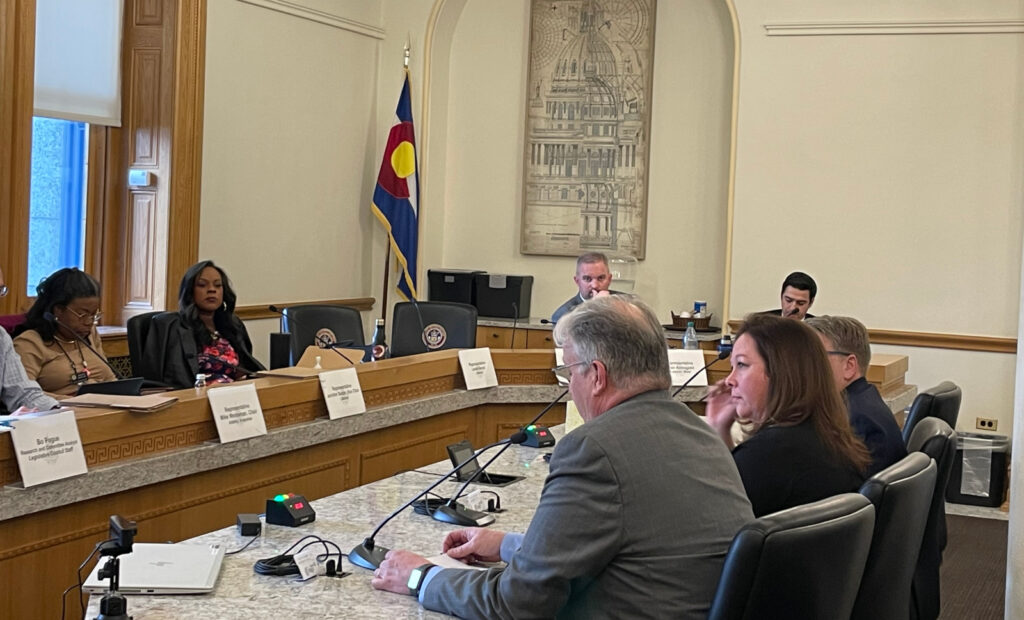By Jeffrey A. Roberts
CFOIC Executive Director
State lawmakers Wednesday moved to make autopsy reports on minors confidential in Colorado despite extensive testimony from journalists and a child-protection advocate who explained the public-interest benefits of keeping those records open.
“When a child dies as a victim of a crime or under suspicious circumstances, that child cannot speak for him or herself — that child has no voice,” Kelly Garcia-Brauch, a former caseworker and child-welfare supervisor, told members of the House Judiciary Committee. “In most cases, it is the autopsy report that becomes the child’s voice.”

Garcia-Brauch cited investigative reporting that relied on autopsy reports to uncover flaws in the child-welfare system, leading to reforms. In the 2000s, she said, “it was journalists who used autopsy reports to find a pattern of lack of supervision and oversight by local and state child-welfare agencies to force systemic change.” In 2012, a joint investigation by 9NEWS and The Denver Post showed that 72 of 175 Colorado children who had died of child abuse in the previous five years were known to the agency that was supposed to keep them safe.
Sealing autopsy records would compound the tragedy of child deaths “in an untold number of instances,” testified 9NEWS investigative reporter Kevin Vaughan, a board member of the Colorado Freedom of Information Coalition. “It would give sanction to failing, neglecting and abusing children to death in anonymity and secrecy.”
But the committee voted 11-0 to advance House Bill 24-1244 after several family members and friends of 17-year-old Riley Whitelaw, who was murdered at a Colorado Springs Walgreens in 2022, testified that details from the autopsy report on Riley’s death had been widely shared on the internet.
“The release of Riley’s autopsy and the information shared by news and social media has forever negatively impacted my life, my family and Riley’s friends,” said Courtenay Whitelaw, Riley’s mother. “I felt powerless to protect the last of Riley’s privacy or spare her friends more anguish. Because media quickly had her autopsy, we were forced to learn details we weren’t ready to know but didn’t want strangers to know before us.”
“There’s permanency in details being shared on the internet, and it’s a life sentence for us while the world moves on seconds after reading or watching something salacious,” she added.
Autopsy reports specifically are excluded from an exemption for medical records in the Colorado Open Records Act. An autopsy report on a homicide victim may be withheld from a requester only under the legal procedure specified in CORA for denying access based on “substantial injury to the public interest.” A coroner must apply to the district court for an order authorizing the withholding of an autopsy report under that standard.
But HB 24-1244, sponsored by Reps. Ty Winter, R-Trinidad, and Marc Snyder, D-Manitou Springs, reverses the presumption of openness that has existed in the law for many years for autopsy reports prepared in connection with the death of anyone under 18. Those would be disclosed only to a parent, legal guardian, law enforcement agency and certain other parties and agencies designated in the bill.
County coroners, however, would be required to release certain basic information pertaining to the death of a minor, if someone makes a request, but not the minor’s name: 1) cause of death; 2) time, place and manner of death; and 3) age, gender and race or ethnicity of the deceased minor.
To obtain a full copy of the autopsy report, a journalist or any other person would have to petition a district court and prove to a judge that public disclosure of the report “substantially outweighs any harm to the privacy interests of the deceased and the members of the family of the deceased” and that the sought-after information is not otherwise publicly available.
Snyder said he and Winter “don’t see a compelling public interest in publishing the name of a deceased child upon written request … We’ve found the experience of grieving family members who have been harmed by the public’s release of the child’s name to be the more compelling interest here.”
But the name, Vaughan said, “is for (journalists) often the entrée to full and complete stories about what the community has lost and about outrageous situations that should be addressed, whether it’s at the legislature or in various public and private agencies.” He cited the 2022 death of 8-year-old Dametrious Wilson, who was repeatedly beaten by his great aunt and missed 60 days of school in the year before he died. “In the autopsy report, the coroner wrote about old injuries, making it clear that he was abused over a long period of time,” Vaughan said.
Candace White, Dametrious’ aunt, testified she would not have had access to Dametrious’ autopsy report had HB 24-1244 been in effect. But “it was important to view what happened to my 8-year-old nephew because it gave me insight into what my niece also experienced in the home as she witnessed her brother’s death … I think it’s important that we release these names so that our children can have a legacy and maybe make a difference for others.”
The legislature tried to seal autopsy reports on minors in 2018, but then-Gov. John Hickenlooper vetoed the bill, writing that “sunshine on uncomfortable and painful topics such as youth deaths can lead to more positive outcomes for other youths.”
Last year, Colorado enacted a law inspired by the death of Riley Whitelaw that requires the names and other identifying information of child victims and witnesses to be deleted from criminal justice records before the records are released to the public.
Follow the Colorado Freedom of Information Coalition on Twitter @CoFOIC. Like CFOIC’s Facebook page. Do you appreciate the information and resources provided by CFOIC? Please consider making a tax-deductible donation.




